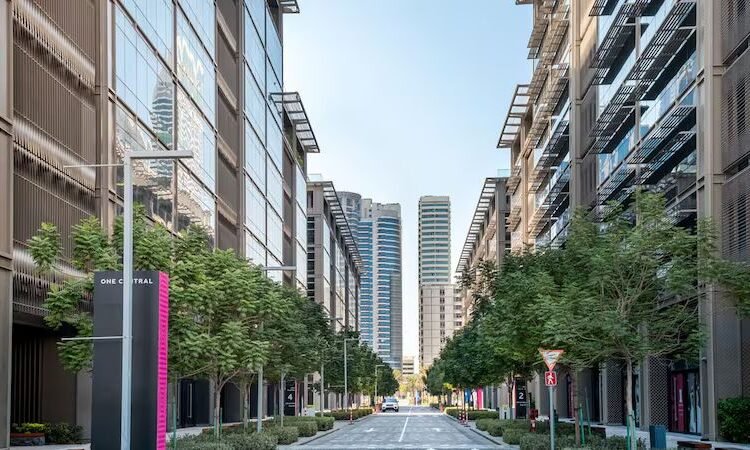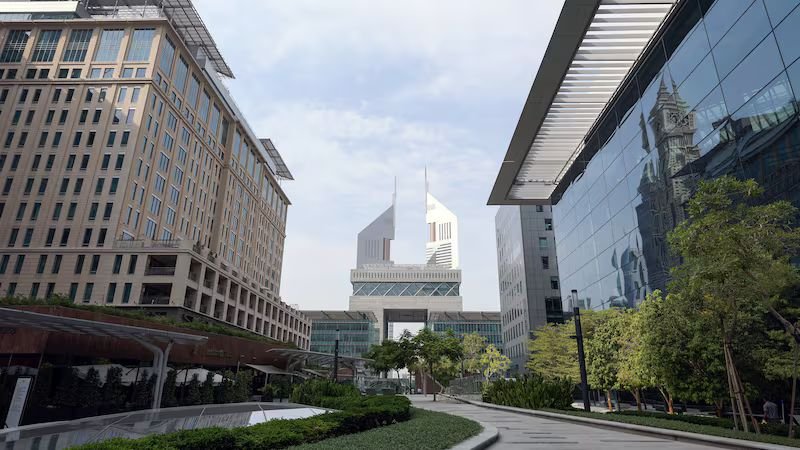
How the UAE’s commercial property market is adapting to hybrid working
The UAE’s commercial property market is undergoing a profound transformation, with the country’s appeal to international businesses stronger than ever. In the first half of 2024, about 34,075 new companies registered in Dubai, marking a 5 per cent increase year on year amid growing interest from global firms.
Beyond Dubai’s business-friendly policies, the UAE’s non-oil gross domestic product is expected to expand by about 4 per cent in 2024, according to the Central Bank. This growth underscores the UAE’s commitment to economic diversification, making it an increasingly attractive destination for foreign investment.
Yet, as businesses adjust to a post-pandemic world, they are also rethinking how, and where, they work. The big question is: Is hybrid working here to stay, or are we headed back to a predominantly in-office culture?
The Covid-19 pandemic significantly shifted workplace dynamics, with lasting effects on the office market. Many businesses now give priority to flexible workspaces that align with hybrid work models, leading to a boom in co-working spaces managed by providers including The Executive Centre, Cloud Spaces and established operators such as Servcorp, IWG and WeWork.

These spaces offer scalability and adaptability, making them particularly attractive to start-ups and new market entrants. This shift reflects a broader rethinking of office requirements, moving away from rigid, traditional setups toward more dynamic environments.
At the same time, prime districts such as DIFC, Downtown Dubai, and Business Bay have rebounded strongly, with Grade A occupancy levels nearing 97 per cent. Rental values for Grade A spaces surged by 25 per cent year-on-year in the third quarter of this year, with Business Bay and Downtown witnessing increases of 44 per cent and 36 per cent, respectively. This renewed demand highlights a return to in-office operations, albeit with greater flexibility in lease terms and layouts.
Sustainability has also emerged as a key priority. Many businesses now seek office spaces that support environmental goals, leading to a rise in demand for buildings with green certifications, energy-efficient systems and wellness amenities. This shift not only helps meet regulatory requirements, but also resonates with a workforce increasingly focused on well-being and environmental responsibility.
Secondary markets, including Dubai Science Park and Dubai Investments Park, have experienced a post-Covid renaissance. These areas recorded significant rental growth (37 per cent) as businesses look for affordable alternatives without compromising on quality. This trend underscores the evolving office market where both cost-consciousness and employee needs drive decision-making.
Despite these positive developments, challenges remain. Supply constraints in prime business districts have lead to rent increases, which can affect lease terms and tenant retention.
Additionally, as companies adapt to hybrid work models, some are downsizing or rethinking their space needs. This shift puts pressure on landlords to offer flexible terms and adaptable layouts.
As these dynamics continue to evolve, developers must design spaces that can shift between collaborative areas and private office settings as needed.
Looking ahead, we’re likely to see continued rental growth for Grade A spaces in central districts, while growth in secondary markets may level off, offering viable options for budget-conscious firms.
The UAE’s commitment to infrastructure, innovation, and an open business environment will keep driving demand.
Ultimately, the shift for the commercial property is bigger than a simple choice between hybrid and office-based work. It’s about creating spaces that enhance productivity, meet environmental standards and resonate with today’s workforce.
For More Details: Please Visit FajarRealty
Source: The National News
Date: 26th December,2024
